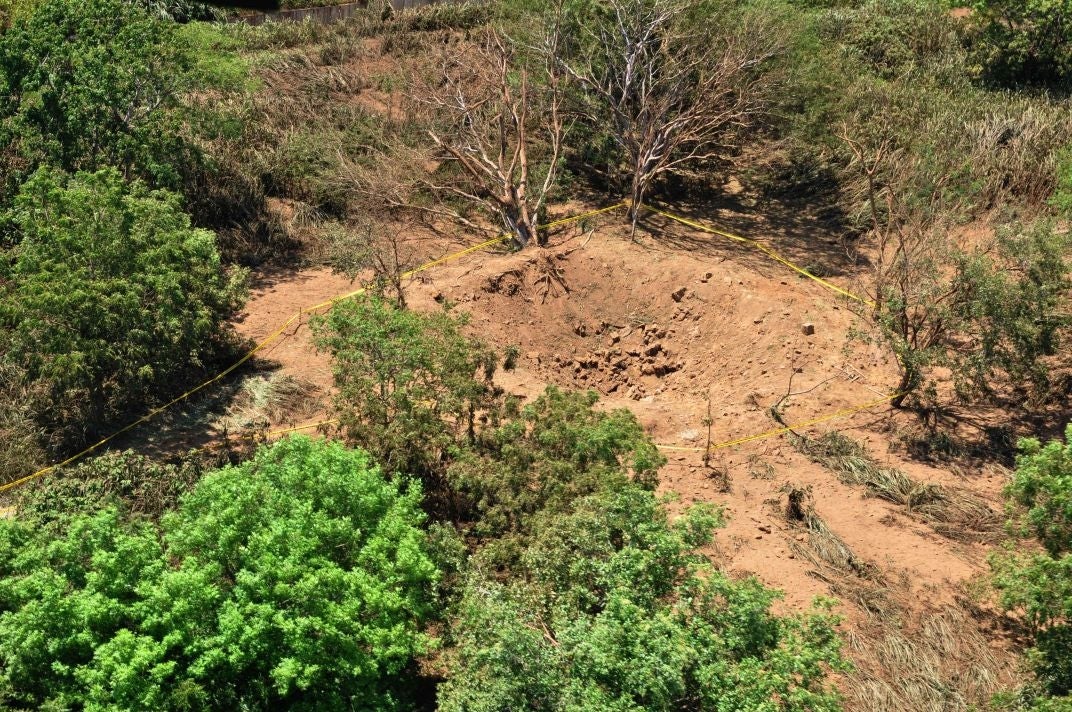Nicaragua meteorite: Experts attempt to understand whether mysterious meteorite fell from passing Pitbull asteroid
Experts do not know whether the meteorite disintegrated on impact or shot into the ground

Experts from across the world are attempting to understand whether a mysterious bang heard in the Nicaraguan capital of Managua on Saturday night was caused by a meteorite which broke off from a passing asteroid.
Baffled residents of the Central American city told reporters that they heard a loud boom at around 11pm, but did not see anything shoot across the sky. Meanwhile, scientists are uncertain whether the now missing rock disintegrated or shot deep into the ground.
"I was sitting on my porch and I saw nothing, then all of a sudden I heard a large blast. We thought it was a bomb because we felt an expansive wave," Jorge Santamaria told reporters.
Jose Millan, from the Nicaraguan Institute of Earth Studies (Ineter), said residents of the capital had made a lucky escape as no one was injured.
"We need to celebrate the fact that it fell in an area where, thank God, it didn't cause any danger to the population," he said.
A committee formed to investigate the incident have confirmed that the noise was caused by a “relatively small” meteorite that fell from an asteroid passing close to Earth, said Government spokeswoman Rosario Murillo.
She added that international experts have been called upon to help local scientists understand the situation and its possible links to the "Pitbull" asteroid.
Meanwhile, Wilfried Strauch, an adviser to the institute of territorial studies, said it was "very strange that no one reported a streak of light."
"We have to ask if anyone has a photo or something," he said.
The meteorite left a crater with a radius 39 feet and a depth of 16 feet near Managua's international airport and an air force base, said Humberto Saballos, a volcanologist with the Nicaraguan institute of territorial studies who took part in the investigation.
It is yet unclear whether the meteorite disintegrated on impact or became buried, he added.
Humberto Garcia, of the astronomy centre at the National Autonomous University of Nicaragua, said the meteorite could be related to Pitbull.
"We have to study it more because it could be ice or rock," he said.
Meanwhile, British scientist Dr Dan Brown said he agreed that the crater may be linked to the Pitbull, or 2014 RC, asteroid, but said this was not the only solution.
The astronomy expert at Nottingham Trent University, said: “Although the impact occurred roughly 12 hours before the asteroid passed Earth, that part of the planet was facing in the right direction for it to have been a fragment associated with it.
"If it was an unrelated object, however, then it further demonstrates how we don't really monitor all the potentially dangerous rocks out there," he suggested.
Echoing the confusion of Nicaraguan residents and experts, he continued: "It certainly makes absolute sense that people surrounding the impact site heard a loud boom - but a flash of light or bright object should also have been observed before that.
"Further analysis will hopefully help to establish this and possibly give a better indication of the object's trajectory. It is still to be seen if any material of the meteorite can be recovered.
"Both pieces of evidence would make it possible to link it to 2014 RC and help us understand more about asteroids," he said.
Additional reporting by AP and Reuters
Subscribe to Independent Premium to bookmark this article
Want to bookmark your favourite articles and stories to read or reference later? Start your Independent Premium subscription today.

Join our commenting forum
Join thought-provoking conversations, follow other Independent readers and see their replies